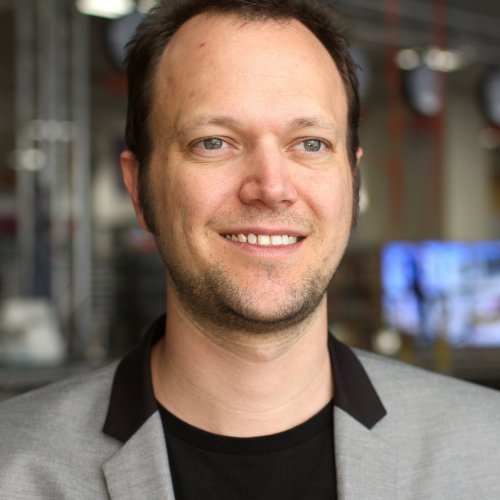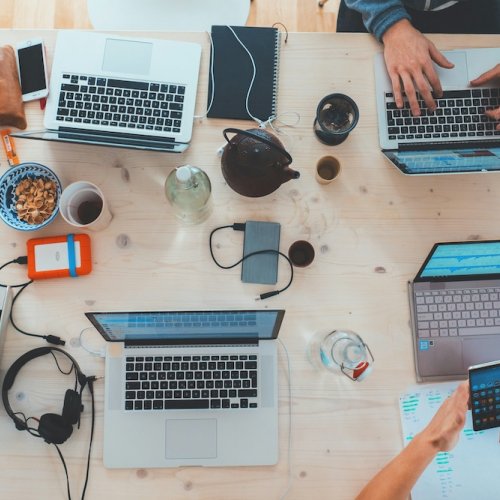Startups
A list of startups with founders who spent time in the EDS.
Startups with a human connection to the EDS
The Engineering Design Studio is not a startup incubator, accelerator, venture studio, or investor, but there is a legacy of future entrepreneurs and founding engineers spending a vast amount of their undergraduate time at NYUAD in the EDS. Some worked on their startups as students, and some even ran their startups in parallel to their studies. Most, however, started or joined founding teams after graduation.
Note: The EDS, in no way, claims affiliation with or credit for these startups. Students listed below have gone on to do excellent things and, coincidentally, spent time co-conspiring in the EDS during their undergraduate years.

![]() Mission Mule. Martin Slosarik, Zane Mountcastle, and Dani Carelli graduated in 2017 and 2018, and went on to build Mission Mule to serve wildlife conservation needs using autonomous aerial vehicles. Martin and Zane later co-founded Picogrid along with Dan Chirita. Dani Carelli moved to SpaceX in 2018.
Mission Mule. Martin Slosarik, Zane Mountcastle, and Dani Carelli graduated in 2017 and 2018, and went on to build Mission Mule to serve wildlife conservation needs using autonomous aerial vehicles. Martin and Zane later co-founded Picogrid along with Dan Chirita. Dani Carelli moved to SpaceX in 2018.
Picogrid. Martin Slosarik, Zane Mountcastle, and Dan Chirita founded Picogrid in 2020 as they identified ways of delivering on complex remote sensing and communications needs across multiple industries. Check out what Picogrid is up to now.

Borderless. Veronica Lee and Shunsuke Kasahara graduated in 2019. Veronica worked with imagiLabs for a couple years after graduation, and Shunsuke worked at WHILL, a personal mobility company, until they founded Borderless in 2022. Borderless helps connect students with international university opportunities. Check out Borderless.

hexafarms. David Ahmed graduated in 2019 and went on to officially launch hexafarms in Berlin in 2022. He worked on early versions of hexafarms while he was a student at NYUAD. Check out hexafarms.


 Auren Bikes. Will Young graduated in 2018 and went on to found Auren Bikes that produces "Bespoke Titanium bikes. Made to order based on your physical geometry, riding personality and budget". Check out Auren Bikes.
Auren Bikes. Will Young graduated in 2018 and went on to found Auren Bikes that produces "Bespoke Titanium bikes. Made to order based on your physical geometry, riding personality and budget". Check out Auren Bikes.


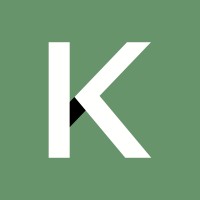 KOPAA. Raitis Pekuss graduated in 2019 and went on to earn his masters from TU Delft in 2023, later founding KOPAA in 2025. He was part of the 2018 NYUAD Solar Decathlon team. Check out the computational and parametric design tools that KOPAA is creating.
KOPAA. Raitis Pekuss graduated in 2019 and went on to earn his masters from TU Delft in 2023, later founding KOPAA in 2025. He was part of the 2018 NYUAD Solar Decathlon team. Check out the computational and parametric design tools that KOPAA is creating.
 martini. Koh Terai graduated from NYUAD and went to work in the film industry; he then went back to school, earning an MS in Design from Stanford d.school in 2025. Post-graduation, he created martini along with Long Hoang to facilitate professional video production using generative AI. They were part of the Winter 2026 batch at Y-Combinator. While at NYUAD, Koh worked in the EDS on the Burj Shadow project as well as his capstone, FocusEye.
martini. Koh Terai graduated from NYUAD and went to work in the film industry; he then went back to school, earning an MS in Design from Stanford d.school in 2025. Post-graduation, he created martini along with Long Hoang to facilitate professional video production using generative AI. They were part of the Winter 2026 batch at Y-Combinator. While at NYUAD, Koh worked in the EDS on the Burj Shadow project as well as his capstone, FocusEye.
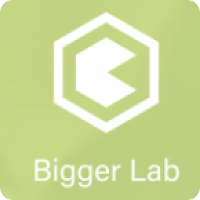 Biggerlab. Rock Zou graduated in 2015 and went on to found Biggerlab with the initial mission to create a space in Shanghai where exceptional project work could happen. He's evolved it into a youth programming education institution that combines technology and academics. Check out Biggerlab.
Biggerlab. Rock Zou graduated in 2015 and went on to found Biggerlab with the initial mission to create a space in Shanghai where exceptional project work could happen. He's evolved it into a youth programming education institution that combines technology and academics. Check out Biggerlab.
Startups with more sparse connections to the EDS
In addition to the startups listed above, associated with individuals who worked on projects in the Engineering Design Studio, below are a few more startups with less direct, but still significant, connections to the EDS.
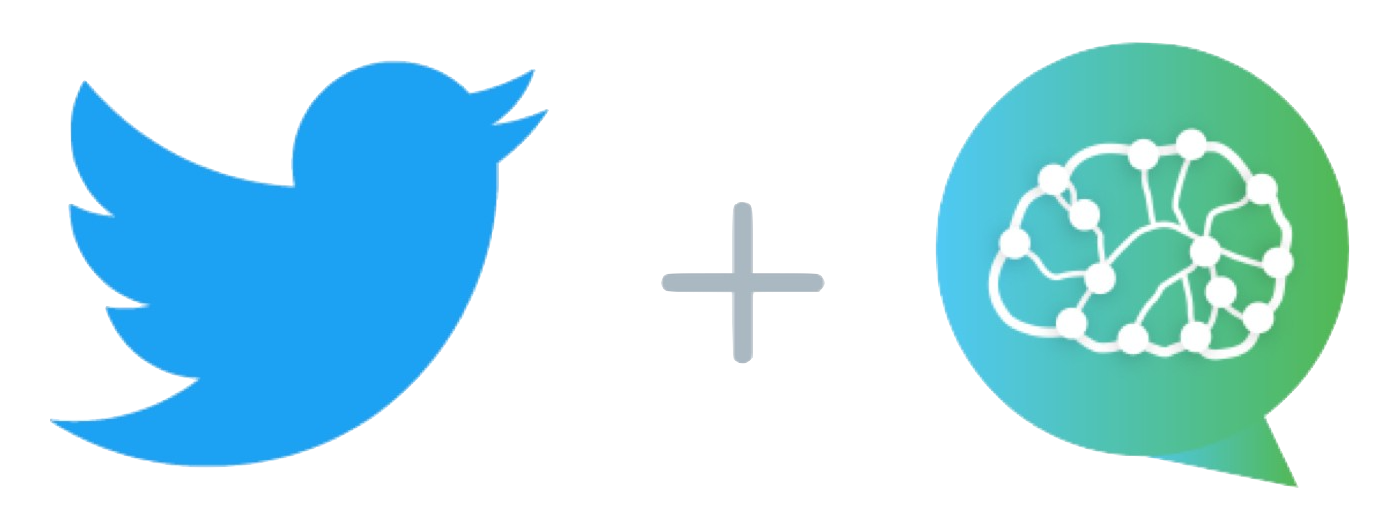 Aiden.ai. Ling Zhang graduated in 2016 and Emil Goldsmith graduated in 2019. Both joined Aiden.ai as early software engineers, and in 2019, Twitter acquired Aiden.ai. Both Ling and Emil stayed with Twitter for a while after the acquisition. Emil went on to work with Picogrid.
Aiden.ai. Ling Zhang graduated in 2016 and Emil Goldsmith graduated in 2019. Both joined Aiden.ai as early software engineers, and in 2019, Twitter acquired Aiden.ai. Both Ling and Emil stayed with Twitter for a while after the acquisition. Emil went on to work with Picogrid.
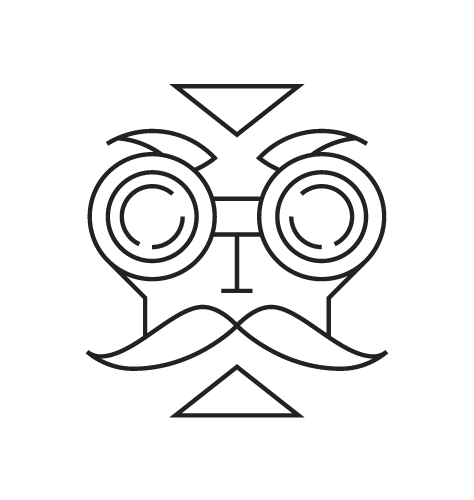 Blacksmith Coffee. Stephen Underwood graduated in 2014 and immediately jumped into creating Blacksmith Coffee, grown out of a Student Interest Group, also called Blacksmith. He and his co-founder, Rafael Scharan, used Matt's old office (C1-036) in the Experimental Research Building as their home base and launched with the support of the team that would eventually become StartAD. The EDS's only claim to fame in the Blacksmith startup journey is that Stephen pulled his first shot of espresso on the Rancilio Silvia machine (still alive, as of 2025) in the EDS. Sadly, Blacksmith now mostly serves as a cautionary tale of how student founders can be pushed out of their own companies when they rush to take external money without having term sheets reviewed by competent, independent, legal counsel. Thankfully, Blacksmith remains a vibrant brand; though, Stephen and Rafael no longer have any financial or operational stake in it.
Blacksmith Coffee. Stephen Underwood graduated in 2014 and immediately jumped into creating Blacksmith Coffee, grown out of a Student Interest Group, also called Blacksmith. He and his co-founder, Rafael Scharan, used Matt's old office (C1-036) in the Experimental Research Building as their home base and launched with the support of the team that would eventually become StartAD. The EDS's only claim to fame in the Blacksmith startup journey is that Stephen pulled his first shot of espresso on the Rancilio Silvia machine (still alive, as of 2025) in the EDS. Sadly, Blacksmith now mostly serves as a cautionary tale of how student founders can be pushed out of their own companies when they rush to take external money without having term sheets reviewed by competent, independent, legal counsel. Thankfully, Blacksmith remains a vibrant brand; though, Stephen and Rafael no longer have any financial or operational stake in it.
![]() Renovate Robotics. Dylan Crow spent time in the EDS while studying abroad at NYUAD. He's done a number of interesting things post-graduation, including starting Renovate Robotics to automate roofing renovations.
Renovate Robotics. Dylan Crow spent time in the EDS while studying abroad at NYUAD. He's done a number of interesting things post-graduation, including starting Renovate Robotics to automate roofing renovations.
 Lumi Labs (Later Sunshine). Will Held graduated in 2019 and earned his PhD from Georgia Tech (though, spent most of his PhD at Stanford) in 2025. Will was one of the early engineers at Lumi Labs, founded my Marissa Mayer. The company changed names from Lumi Labs to Sunshine in 2020 and eventually wrapped up operations in 2024.
Lumi Labs (Later Sunshine). Will Held graduated in 2019 and earned his PhD from Georgia Tech (though, spent most of his PhD at Stanford) in 2025. Will was one of the early engineers at Lumi Labs, founded my Marissa Mayer. The company changed names from Lumi Labs to Sunshine in 2020 and eventually wrapped up operations in 2024.
Why future founders spend time in the EDS
As stated above, the EDS is not an official source of advice or education for future founders, so speculation on the existence of a causal relationship should be met with extreme skepticism; the EDS (or any other lab, office, or Student Interest Group at NYUAD) does not create founders. However, the lab has been carefully crafted to foster a kind of thinking that often naturally aligns with being a founder. The room is a "high agency" environment, and that is the best prototype we've found to nourish an entrepreneurial spirit. A space like the EDS is a natural attractor for individuals seeking an environment where the expectation is to produce exceptional outcomes while undertaking challenging, open-ended problems, with shifting constraints, where risk of failure is, decidedly, non-zero.
Additionally, Matt Karau, the founding director of the EDS, has served on the selection committee for the in5 Tech incubator in Dubai since 2016. In this role, he has reviewed thousands of startup pitches (250+ per year) from founders seeking support to grow their startups in Dubai. This amounts to an implicit promise that if you come to the EDS for a conversation about startups, it will never be boring. in5 Tech is part of the in5 ecosystem (Tech, Media, Design, and Science) and operates under Dubai Holding.
General Advice (for students trying to think entrepreneurially)
- You probably don't need money right now.
- Not all money is good money. Be picky, and learn about structures like SAFE Notes.
- Learn to say no to investors who will meddle more than they will help.
- You likely need to more authentically understand what you're working on.
- You're likely not thinking big enough.
- Your ideas need to survive brutal critique; customers, competitors, and investors don't have to (and shouldn't) be nice to your ideas.
- Wanting to be rich isn't a good enough reason to start a company.
- If you want to get rich quick, just do crime.
- Wanting to become a "unicorn" is a grift unless you have a business with products and customers. I've setup, Centauricorn.com a fictitious venture capital firm that only invests in companies that have a pre-money valuation of $100 billion or more (we invest $1 for one-hundred-billionth in equity). Making money is a necessity for keeping a business alive, but it's not the only driver, especially in the beginning.
- Beware of "Venture Studios" that support founders "pre-idea" and take up to 40% ownership.
- If you don't have first-hand, real-world experience with the idea you're working on, your co-founder should.
- You need a good co-founder.
- You need a good lawyer.
- Ensure agreements and contracts are written as if you are not on speaking terms with the other party. They will only be enforced in a situation in which civil discourse has broken down, so you better be in a solid legal position when things go sour.
- Tarpit Ideas are, by definition, exceedingly tempting and apparently easy pots of money that, confusingly, no one seems to have tapped into yet. Despite initial impressions, they are, more often than not, ungainly, nearly impossible problems that require heroic feats like boiling the oceans to tackle. They're hard to avoid without mentorship. Always be questioning if you're stepping towards or into a tarpit.
- You should cultivate co-conspiratorial mentor relationships, up and down, in which frankness and honesty are front and center.
- Find or create an environment where people are doing serious work; elevate others and be elevated by this.
- You probably don't need to drop out (especially if you are on a relatively generous scholarship).
- If, pre-revenue and pre-money, you haven't worked on your startup everyday for the past two months, you probably don't have a startup. (see: Ideas are Cheap)
- Go work for a startup instead of searching for a corporate summer internship.
- Be willing to work for free. This opens more doors than you can imagine.
- You might not need to go to an incubator or accelerator.
- If you go to an incubator or accelerator, be snobby; only go to a top-tier program. Their fame, reputation, professional network, and access to investors is what will help you most.
- Good incubators will kick you out once you've been incubated; if they don't, run!
- Letters of Intent (LoI) are not contracts and mean next-to-nothing.
- Don't build your product rigidly to only serve your first customer's hyper-specific needs; that's consulting.
- Build something where revenue scales faster than costs; not all customers can be given a white-glove service.
- You probably need to pivot, not because that's what everyone does, but because your idea hasn't been tested by fire.
- You probably don't need to do a bunch of entrepreneurship courses. All incubators run the same types of playbooks, and you can navigate their exercises in your own time.
- Your first DIY project is exceedingly unlikely to directly translate into a successful company.
- Your hackathon idea is exceedingly unlikely to directly translate into a successful company.
- Your research project is exceedingly unlikely to directly translate into a successful company.
- Your capstone is exceedingly unlikely to directly translate into a successful company.
- Your mentor's academic research is exceedingly unlikely to directly translate into a successful company.
- Translating an idea into a company requires just that, an act of translation (not merely direct replication and incorporation).
- Government structures of thought and policies do not mirror what fuels entrepreneurship.
- University structures of thought and policies do not mirror what fuels entrepreneurship. A faculty member will often scope a startup to be a small enough annoyance to their existing schedule to fit alongside their teaching and research responsibilities, and this will, almost always, represent a kind of thinking that is too small to create a successful venture. Often, the outcome is just a research project dressed in startup clothing.
- Understand Conway's Law: "The structure of any system designed by an organization is isomorphic to the structure of the organization."
- Learn how to take reasonable and reasonably large risks.
- "Sure Things" are most likely copy pasta.
- "Regionalization" is code for copy pasta.
- Beware of copy pasta. Work on things that offer at least a semblance of novelty.
- Annoyance plays are just that, annoying. Starting an Uber clone with the hopes that Uber will, one day, be forced to acquire you, is just tacky. Leave that kind of brain-dead nonsense to the brain-dead. Sure, annoyance founders become undeservedly rich; only the wrong people will care about this kind of "success".
- Sometimes, in fact quite often, boring-sounding, non-consumer-facing ideas are the most successful.
- Don't be a "Wantrapreneur", an individual who only seeks the glory of a CV wherein every job title is CEO or founder, regardless of the underlying business.
- You very likely can't make it cheaper, and you can't compete on price alone.
- "Making it cheaper" in a university setting is usually just an exercise in improper accounting of resources consumed while developing an idea. You can't just add up the cost of materials of a single prototype.
- The world isn't fair; don't demand that it is.
- Being an outsider can help you, but often only at the beginning.
- Being an insider can hurt you at the beginning. Be aware that you're likely partially-lobotomized and blinded by legacy thinking.
- The world probably doesn't need another startup from recent graduates of a prestigious university that advises students from their home countries on how to hack the admission processes of prestigious universities.
- Get good at working under shifting constraints.
- A problem isn't solved better just because it's solved using something you like or something you're already good at. Problems demand to be solved by whatever is the actual best way to solve them, regardless of your personal opinion, affinity, or expertise.
- A competitive advantage is only advantageous if it's conceptually, technically, or legally hard to copy.
- Don't compete with a switch. Ideas are weak if they compete with a feature flag or "switch" that can be easily flipped in existing products from established players.
- You can't make a better iPhone. It's tempting to think you could, and I'm sure you have all kinds of cool ideas. However, you have no means with which to realize those ideas, and you'd be insane to try to mobilize such resources for marginal improvements that, Apple is likely already implementing in their next iPhone release. Apply for an internship at Apple instead.
- Don't wait for someone to pay you to work on something you care about or believe in.
- Exercise your brain more than you exercise the rest of your body. No one needs to know how many reps you do at the gym; likewise, be sure you allocate time and space to do reps with your brain without an audience.
- Don't feel compelled to start a company because of someone else's (or an organization's) KPI goals.
- Don't start a company to gain the praise or adoration of others.
- Learn why doing the harder thing is what sets you apart.
- Be careful about utilizing the word "exponential". Very few things are actually exponential.
- Every pitch deck, on average, is the same. Be sure your pitch has a little drama and flare. (See: Figma Seed Stage Pitch)
- Don't request an NDA prior to discussing your idea. This is a red flag and singles you out as an insecure founder building on a weak idea.
- Understand why people say "ideas are cheap". It's not as simple or personal as someone saying that your idea is uniquely cheap. All ideas are cheap. Your idea might be a good one or a bad one, but with some certainty, it is cheap, in the sense that someone else has likely thought of it before, or is currently thinking of it. The question is: are you committed to working harder than anyone else on it?
Interesting Podcasts
- Acquired
- American Innovators
- Business Wars Daily
- Entrepreneurial Thought Leaders
- Freakonomics
- How I built This
- Masters of Scale
- Science Vs
- Search Engine
- Startups for the Rest of Us
- The Future of Everything
- The Next Big Idea
- The Pitch
- Distributed with Matt Mullenweg
- Flash Forward
- Future Perfect
- Moonshot
- Reply All
- StartUp Podcast
- The Unicorn Launcher
- The Product Manager Podcast
- Lenny's Podcast
حقوق الطبع والنشر © 2026 المؤلفين الأصلي. كل الحقوق محفوظة.


